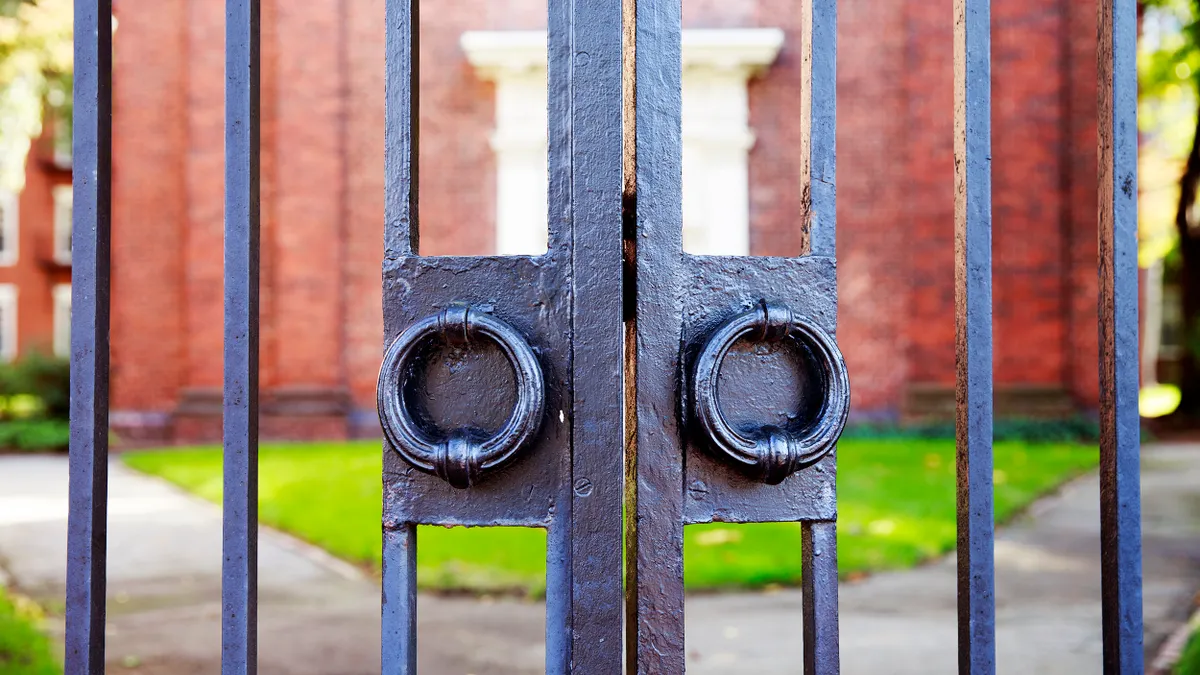Dive Brief:
- Fewer college faculty participate in college presidential searches than did 20 years ago, according to a new American Association of University Professors report.
- Two decades ago, about 94% of institutions reported that faculty served on presidential search committees, which dropped to 88% in 2021, the AAUP found in a recent survey of faculty governance leaders at four-year schools.
- The organization said this is the first such decline in a century, though faculty participation remains higher than in previous decades. In 1971, only 67% of schools reported faculty involvement.
Dive Insight:
The survey of 396 respondents provides a snapshot of colleges' administrative processes when the pandemic is stressing higher education's treasured tenant of shared governance.
The AAUP has said some colleges leveraged the pandemic to lay off faculty members and chop academic programs, contravening shared governance. It investigated eight institutions for such infractions, and in June sanctioned six of them for shared governance violations. An AAUP official has said the designation means to inform prospective students and faculty that the institutions do not follow governance norms, potentially impeding them from attracting members from both groups.
The report delves into the composition of faculty senates and councils and who is allowed to vote. The share of institutions that allow part-time faculty to fully participate in governance matters has fallen to just over 14%, a roughly 5 percentage point drop since 2001.
At about 67% of four-year institutions, part-time faculty cannot vote on these issues, and at 72%, they cannot join the committees at all.
Some faculty members are even unaware of who presidential finalists are, despite needing to work closely with them and other high-ranking administrators.
Institutions that have employed closed presidential searches — those that don't announce candidates or finalists before one is selected — say they protect candidates from job loss. Open searches might jeopardize candidates' current positions if the public gets wind they are seeking new ones.
However, researchers have found no empirical evidence to support this logic. And the AAUP report notes that about 40% of institutions are using confidentiality agreements in presidential searches as a condition for faculty participation in search committees.
Only about 55% of colleges reveal the finalists for president jobs, with major differences between public and private institutions. About three-quarters of public colleges' presidential searches were open versus about two-fifths of private institutions' searches.
"Both closed searches and confidentiality agreements have been areas of concern raised by individual senates or AAUP chapters in recent years, although little information has been available about the prevalence of such practices," it states.














